Bussiness
Scotland’s Swedish-inspired ‘Goth’ pubs putting charity first
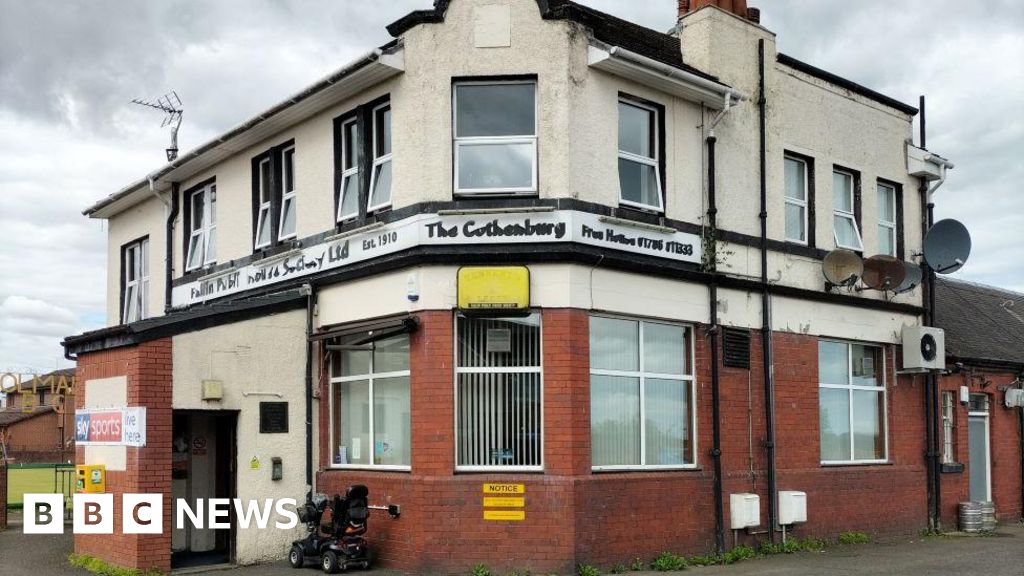
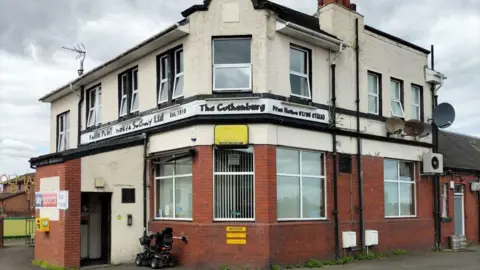 BBC
BBCFor more than a century, the Goth pubs of Scotland have been central to charitable efforts in mining towns and villages across the country.
Don’t be fooled, these Goth pubs have nothing to do with sombre teenagers dressed in black.
Instead, they are named after a system developed in Gothenburg in Sweden.
The Scottish Goth pubs were found in pit towns and their aim was to discourage heavy drinking and funnel 95% of their profits back into their local community.
At one stage, there were as many as 50 Goth pubs in Scotland but now there are only four left that stick to the Gothenburg system.
In many examples, the Goth pubs were set up by the owners of coal mines or those who ran them.
“The coal contractors could come in, have a seat and watch their employees,” says Billy Hodgson, committee member at the Fallin Goth.
“So if they didn’t make it in to work the next day, they’d say ‘you were in the Goth last night getting drunk’,” Mr Hodgson says.
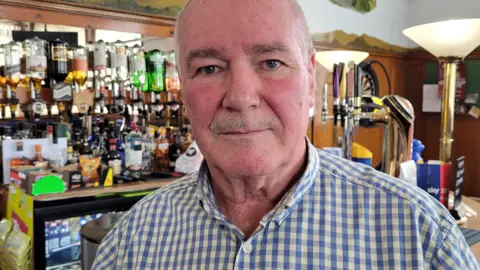
The Fallin Goth has had a long history of providing for the village near Stirling which developed around the local colliery in the early 20th Century.
“Back before the NHS, the Goth paid for a nurse and a doctor,” says Mr Hodgson.
Today, the rooms above Fallin’s Goth are divided into two flats, to act as a leg up for young people before they buy their first home.

Another part of the ethos of a Goth pub was to provide alternatives to drinking.
In Fallin, a bowling green was opened in 1911, the year after the pub, according to local historian Craig Mair.
The Goth also provided night school lessons for miners to try to better themselves and a library which would be open to anyone in the community, according to Mr Mair.
Fallin’s Goth was at the “heart” of the mining community – the entrance to the pit was just across from where the pub sits today, he says.
Cash raised in the pub paid for soup kitchens, where striking miners and their families could get a free meal, and weekly raffles tried to raise money to help with day-to-day costs.
The idea of giving out food still remains.
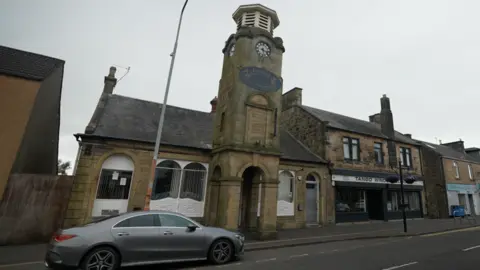
Fiona Holborn, treasurer at the Goth in Armadale, West Lothian, says they see themselves very much as a charity first, ahead of being a business.
“All the profit we make we tend to give out to the food banks,” she says.
They also sponsor things like local football teams and sports events but reaching older and vulnerable people remains a key driver for the committee.
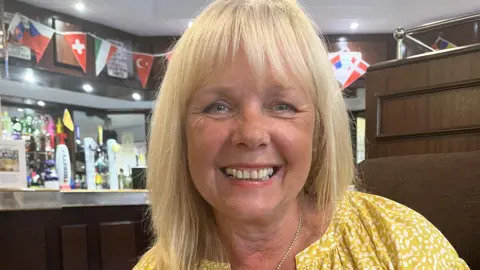
“We give out vouchers at Christmas,” she says.
“It gets them out of their house rather than staying at home.”
Keeping that social conscience has been of the highest importance, Ms Holborn says.
“We had a girl who was poorly, she was 18. We don’t do 18th birthday parties, but we gave her the hall, dressed it up for her, gave her a disco. So we invested in the individual,” she says.
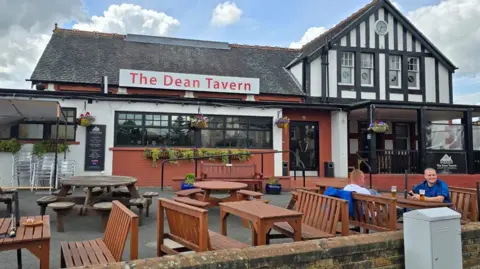
Balancing tradition and renovation has been a central issue for The Dean Tavern in Newtongrange, a former mining village in Midlothian.
“We’ve had to make sure that we’ve been prudent,” says Gary O’Connor, chair of the pub’s committee.
“We’ve refurbished the main hall. We have spent money on the bar, we had to incorporate food,” he says.

The pub now benefits massively from food sales, and the customers are “well aware” their cash comes back to the community.
“They’re aware that part of the pound goes back to supporting organisations within Newtongrange,” Mr O’Connor says.
In the last year, The Dean Tavern has given thousands of pounds to the likes of the local Accordion and Fiddle Club, the Girls’ Brigade, and various local sports teams.
They’ve even expanded to accommodating Tai Chi lessons in their hall.
As well as ensuring the pub gives back to the community, maintaining a business is what motivates Mr O’Connor.
“It has to be run as a business making sure we retain profits for the upkeep of the building and also to be distributed to the local community,” he says.
For all Scotland’s remaining Goth pubs, they face the same challenges as any other licensed premises – with the added duty of balancing important social history and modernisation.










